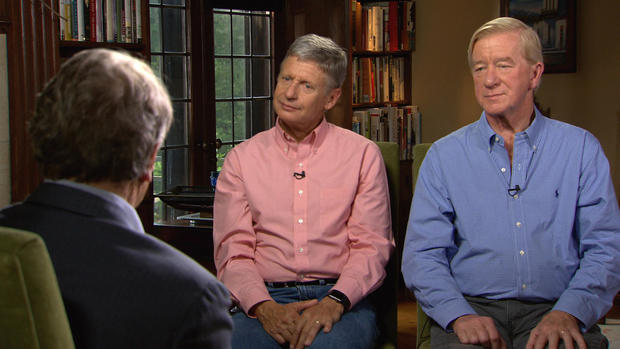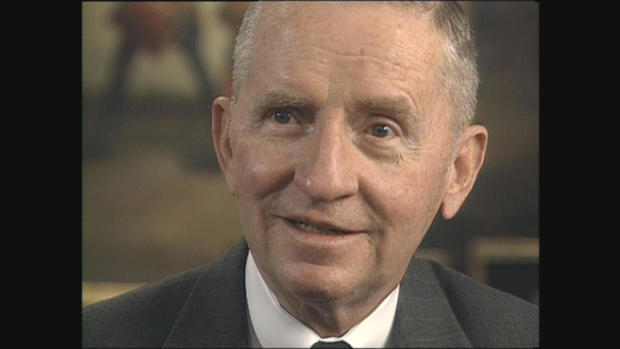Giving third-party candidates a second thought
In the pantheon of American presidential hopefuls, rarely does a third-party candidate disrupt the race in such a way to make 60 Minutes stop and take notice. When it does happen, it says as much about the state of the race as it does about the candidates themselves.
This week, Steve Kroft sat down with the 2016 Libertarian ticket, Governors Gary Johnson and Bill Weld. It’s the first time 60 Minutes has spoken with a third-party presidential candidate and his vice-presidential running mate, and it had us curious about other presidential would-bes who caught the attention of 60 Minutes producers.
It seems 60 Minutes takes note when America does: Perot in 1992 received nearly 19 percent of the popular vote—more than any outsider candidate has received since Teddy Roosevelt in 1912. The last third-party candidate to win electoral votes was George Wallace of the American Independent Party. He sat down with 60 Minutes correspondent Mike Wallace in October 1968, merely one month after 60 Minutes’ first broadcast and just weeks before the election that ended a chaotic campaign season.
“What Americans love most of all is a maverick, an untamed cowpoke, willing to ride in and clean up the town...”
These two interviews reflect men whose outsider status—either in profession or policy—made them appealing choices to voters. In the clip above, Safer said of Perot, “What Americans love most of all is a maverick, an untamed cowpoke, willing to ride in and clean up the town, especially one who’s willing to blow $100 million to get hired for a job he says he doesn’t really want.”
If a rich political interloper has echoes of this year’s presidential contest, so too does a controversial figure who knew how to use television to his advantage.
In his profile of George Wallace, excerpted in the clip below, correspondent Mike Wallace explained how the candidate profited from appearing on TV, saying, “For Wallace, television is a stage for conflict, confrontation. ‘Agree with me or not,’ he seems to say, ‘but you won’t be bored, you won’t turn me off.’”
Americans may not have turned off Wallace the candidate from their TV sets, but Wallace the man turned off many voters with his controversial positions. The politician who in 1963 famously called for “segregation now, segregation tomorrow, and segregation forever,” had been called “racist,” “fascist,” and a “demagogue” by the time he met with 60 Minutes—fighting words that have also been thrown around in this year’s election.

